Pianist Morten Schantz has been a prominent and pioneering figure on first the Danish, then international jazz and fusion scene for more than a decade. With saxophonist Marius Neset and drummer Anton Eger, also members of his new trio, he founded ground-breaking quintet JazzKamikaze in 2005, playing an exhilarating fusion of jazz, rock, funk and hip hop. Since then he has composed and performed across the full range of jazz-related fields, with ensembles including Unicorn, playing North African music, and Segment.
He has recently formed a new trio, Godspeed, with long-standing collaborators Neset and Eger, which will introduce an electronic dimension into his exploration around the boundaries of jazz. Godspeed has just signed to British label Edition Records. Their debut album will be released next year, but a preview is available in two live performances next week.
MATTHEW WRIGHT: Your new trio promises to “propel jazz fusion into the next galaxy”. What do you mean by that?
MORTEN SCHANTZ: The musical plan is to mix. It’s limitless in terms of genre. I don’t want to restrict myself to the jazz history and jazz language per se, so I’m trying to combine elements from electronic music, but still in an atmosphere where you’re improvising, and inventing stuff on the spot, as in jazz music. It’s kind of a new take on the genre, if you can call it jazz. It is improvised, but it has a lot of structures around it from electronic, and from pop and rock, with grandiose finales to the songs. There are only three people in the band, but still we are able to produce a large sound. Those are some some heavy words, but I can identify myself with those sentences.
For this project I rediscovered Weather Report
I hear a lot of Herbie Hancock in your latest trio compositions, though also passages of very chilled, electronic melody. What other bands/musicians have been an influence on your sound and development?
Herbie Hancock is definitely one of my big idols and inspirations for this album. I made some albums 10 years ago that were very much Headhunters-like, but just because this has no bass, it makes it different. I’m playing all the bass with my left hand, and that limits a little the things that I would normally do with my right hand.
For this project I rediscovered Weather Report, Joe Zawinul and his soundscapes. I would also mention Radiohead and Thom Yorke. I’ve been listening to Radiohead for many years. The way of thinking, odd meters, the way they make that accessible is very interesting. I’m not into electronic music, but when I heard a song I really like, I do get inspired by them, such as recently, with deadmau5, or Avicii.
How did your interest in and use of electronic music begin? What does it offer you musically?
The most electronic stuff I listen to are Thom Yorke’s solo projects, Atoms for Peace, and some French bands, Air, M83. That’s pop electronic. It’s not really hardcore electronic.
Is there ever a conflict between the precision of an electronic rhythm and the flexibility you might need in a straight jazz composition?
Not really because on Godspeed we have an electronic beat, but it’s timeless, it’s not in a time signature, so we can be flexible with it. Anyway, we continue playing in the same time signature in that song. Anton [Eger, drummer] is getting a click in his ear, both on the album and live, so we are a little bit restricted, and in that sense it’s unusual for jazz, but I would say maybe 80 or 90 per cent of the music is not to any click. I created a very special set-up – it took me a long time to figure out – I don’t want to use a computer, or have that screen on the stage because for me it’s soulless. So I created an analogue system, where I use sequencers. I chain all that together through MIDI, and I send an analogue drum machine click to Anton’s ear, and only those passages he will put in his earplug and can follow the click. It’s quite flexible and we don’t need to follow backtracks, and we can totally get away when we need to because it’s just one push for me on my sequencers and it will start. It’s not fixed.
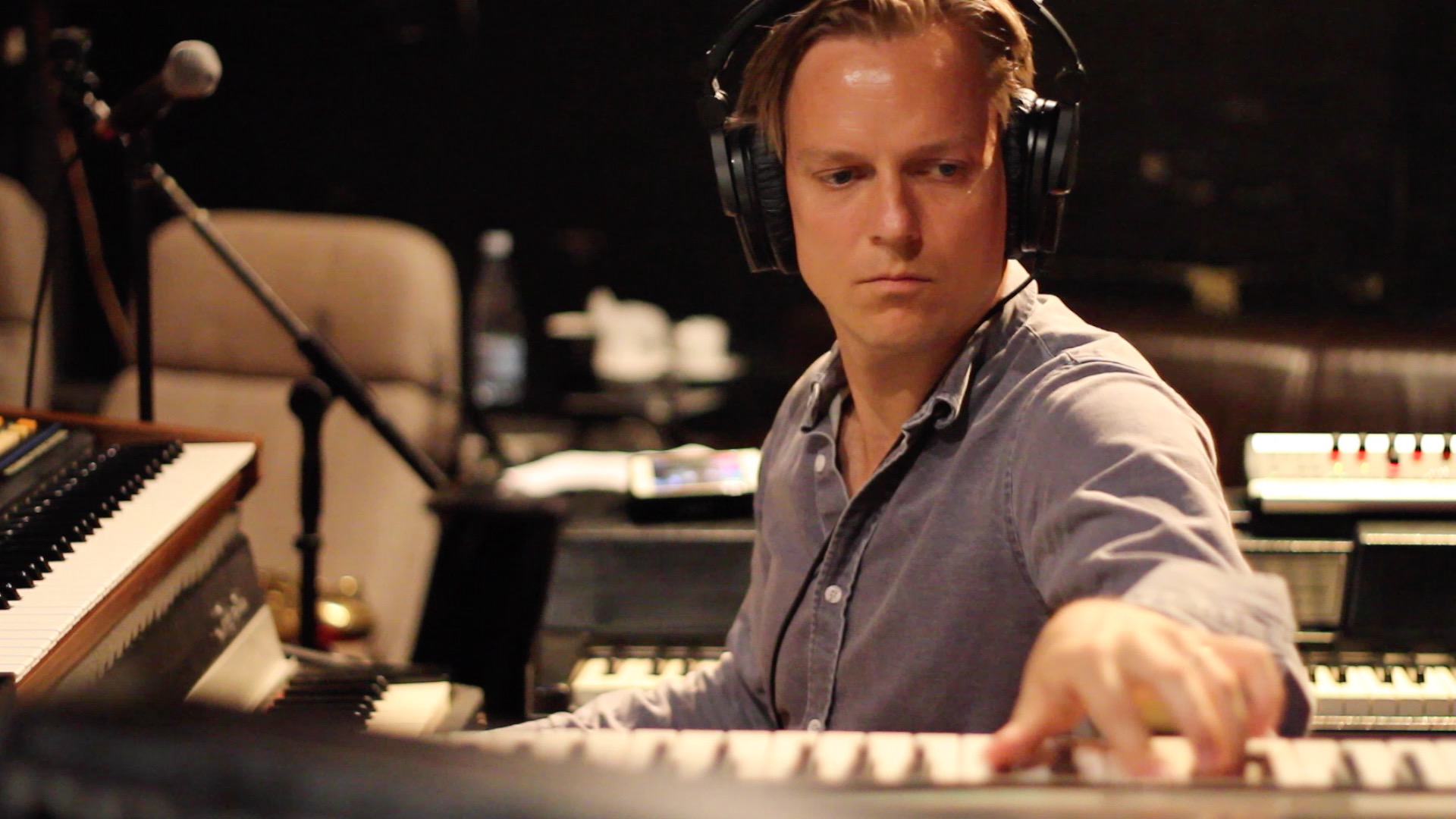
You’ve performed in a encylopaedic range of ensembles – solo, trio, Segment, and JazzKamikaze, and in different styles – and your album Unicorn had Moroccan instruments and a bluesy feel, yet there’s a characteristic energy and intensity. How much are you the same person in each band, and how much do you differ according to the kind of music played?
I’m happy that you heard a signature. Especially playing with JazzKamikaze, it’s different, because I feel that I’m one fifth of the band, and I can sometimes hide, in a nice way: in this song I’m accompanying, I don’t have to take responsibility… Whereas Godspeed is the most challenging I’ve done. It’s definitely crazy to be playing with Anton and Marius. I’ve been playing with them my whole musical career. The things they create together are sometimes so complex. I can’t just sit back and rely on the bass player. This time I am the bass player. I need to be inside what they’re doing, and I need to communicate some interesting response to whatever Marius is playing when he’s playing solos. And I need to control the electronic stuff, and have some energy left to enjoy the music.
So it’s very challenging, but it’s also coming together, and I also have the creative option to go many different ways as I couldn’t before, because I’m the bassline. It’s very different. When I play with my acoustic band, Unicorn, which is world music-inspired, I really like to challenge myself, and listen to new music. What I’m doing right now is writing a small symphony. I’m really into classical music as well. I totally discovered that recently. It’s new for me. I’ve never been to classical school.
JazzKamikaze, we’ve been together for 12 years, so I’ll definitely continue. Unicorn is my trio plus a percussionist, and I’m not sure if I’m going to revisit that sound. I’m definitely going to do something acoustically, but I’m not sure exactly what.
You’re playing on the boundaries of many different styles – jazz, rock, blues, and various kinds of improvisation. What do these categories mean to you? Are the distinctions meaningful?
It’s all just music. I’m not thinking that I have to do this or that in the book. I’m just taking what I can use, putting it together, and painting my own picture from all of these elements. I’m using analogue synthesisers. I started searching for these instruments about three years ago, and really went full-time into that. This is the outcome. I wasn’t aware it would be, but this is how it happened.
Is Godspeed a collaboration? Or your idea?
It’s definitely my project. I knew it would be Marius, then I thought I would find another drummer, because I didn’t want it to be a mini-Kamikaze – the same band but stripped down. I talked to Marius, and we decided we had to have the right drummer, but that, especially for this kind of music, it would have to be Anton. They’re my songs, it’s my project, but they have a lot of space, and what we do is based on three people with a lot of respect for each other, and I’m not directing them. It’s a collective effort.
You have just signed your new trio to Dave Stapleton’s British label Edition Records - how did that come about? Where do you hope to go with them?
When I formed JazzKamikaze with Anton we were totally different musicians
I’ve been hearing a lot of good stuff about Edition Records from Anton and Phronesis, and from Marius, who released his first two albums on Edition. I was impressed by how Dave could promote these bands and promote their careers. You can’t find that kind of label any more in Scandinavia. This was definitely the right guy to deal with. He was really into the music as soon as I sent it, and wanted to sign us straight away. It’s a nice feeling for an artist to know that the people behind the label want to make something of it; they see the musical vision. So my goal is to start touring more internationally. On Monday I’m going to the Zanzibar Festival with Godspeed.
You’re borrowing saxophonist Julian Argüelles for now but I understand Marius Neset will be joining the trio soon?
Yes, that’s the plan. I have a very special connection with Marius. He’s on the album. He wasn’t able to make it to London this time, and probably that’s going to happen again because he has many commitments himself. I’m really thrilled to have found Julian. He plays fantastically. He will bring something different, in a good way, to the music and I can’t wait to perform with him. I also have another drummer, substituting to Anton. I need to be realistic. Only having two other people in the band is not an option.
Like the drummer Anton Eger, he is someone you have collaborated with for over 10 years since the start of JazzKamikaze. How did the musical relationship develop?
It’s amazing, when we started out, I heard Marius play as an 18 year-old. He had just been accepted to the Conservatory in Copenhagen. I was in my second year. I was blown away by this young guy who at that time played a lot like Michael Brecker, with all the right technique. I knew that I was going to play with him. When I formed JazzKamikaze with Anton and him we were totally different musicians. But we played so many concerts all round the world in just a few years, and playing these concerts and making albums, and going through so many musical directions and processes, struggles, discussions – sometimes heated – has created a special bond, and I feel that with both of them. When I’m playing duo passages with Marius, I feel we don’t need to look at each other, or agree anything beforehand, we can just go somewhere and the other one knows exactly what is happening. I don’t have that musical trust with anyone else.
- Morten Schantz’s trio Godspeed plays at the Watermill Jazz Club on 15 September and at Pizza Express, opening the Sounds of Denmark festival, on Friday 16 September.

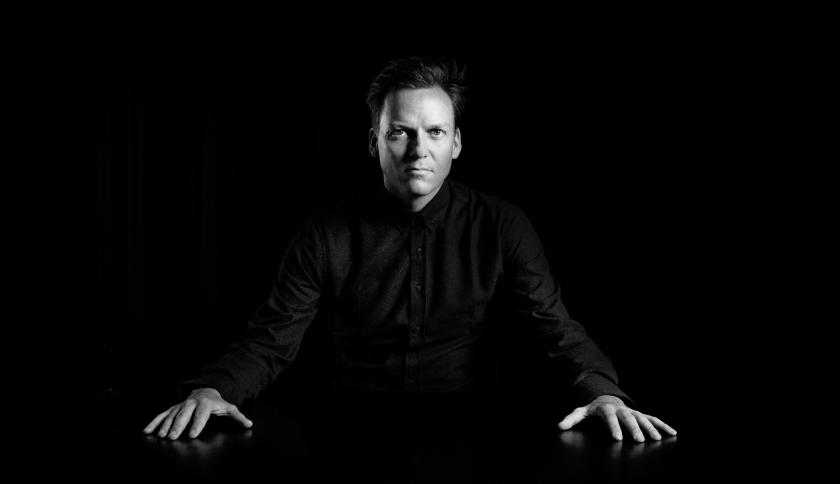

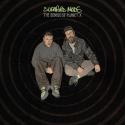
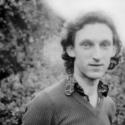
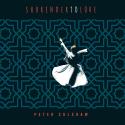


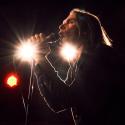

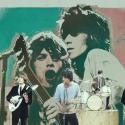
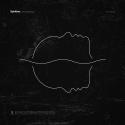

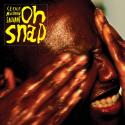

Add comment